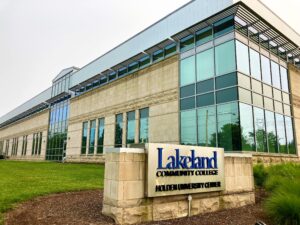Increases in financial aid and personal income are central to currently enrolled higher education students’ decisions to remain in school. That is one of the findings of a recent Gallup higher education survey of more than 12,000 adults between the ages of 18-59.
According to the survey, participants didn’t wholesale question the value of a college education. In fact, currently enrolled students believe that a college degree is more important today than it was 20 years ago in terms of facilitating a successful career. That sentiment is echoed by students who had been enrolled in a post-secondary program but left without completing a credential. Among all survey respondents, those who stopped out (61%) were most likely to consider returning to school, and that number increased from 2021 to 2022.
In other words, those who have enrolled in post-secondary education programs at some point are sold on the value proposition of earning a college degree. This isn’t just a perception. Statistically, people who have a four-year college degree earn substantially more over their lifetimes than those who do not.
But age plays a factor in their desire to return to the classroom. Respondents between the ages of 18-24 were much more likely (81%) to indicate that they would consider re-enrolling than similarly situated respondents over the age of 25 (59%). By itself, age isn’t really the issue. More likely, returning to school becomes less attractive when the demands of adult life interfere with the options available for degree completion.
People over the age of 25 are likely to be self-sufficient, but that sufficiency depends on their availability to work. Although they recognize the benefits that accompany a degree, the cost and time commitments associated with degree completion weigh heavily on the decision to return to school.
Personal income increase is a deciding factor
In practical terms, most cannot afford to divert their immediate financial resources or their time away from their current obligations to accrue a future benefit. But merely eliminating the tuition and fees through a program like Michigan Reconnect does not address the reluctance of non-traditional students to return to the classroom. Beyond the expense associated with earning a degree is the time expended and the potential increase in personal income.
Spending a large percentage of a person’s “free time” to earn a degree that will not generate a substantial increase in income simply won’t sell. To really succeed, a program like Michigan Reconnect must not only eliminate the burden of tuition, but it must also provide substantial personal income opportunities in an achievable timeframe. To reliably draw in non-traditional students who have either stopped out or never enrolled, colleges and universities must rethink the traditional semester models. This will allow prospective students to manage the limited time they have available to devote to degree completion.
Additionally, community colleges need to become very particular about the programs they offer to non-traditional students. Personal income is very important to non-traditional students. Programs that prepare students for low wage jobs benefit exactly no one, so community colleges should eliminate them. A catalog full of low wage programs will not draw students into classrooms, so why generate that image for adults who are considering a return to school?
Photo Credit: Aleksandar Cocek0, via Flickr
























